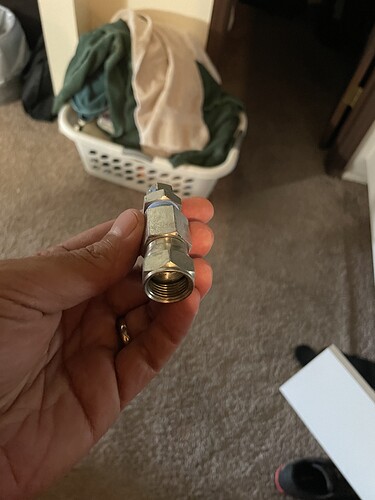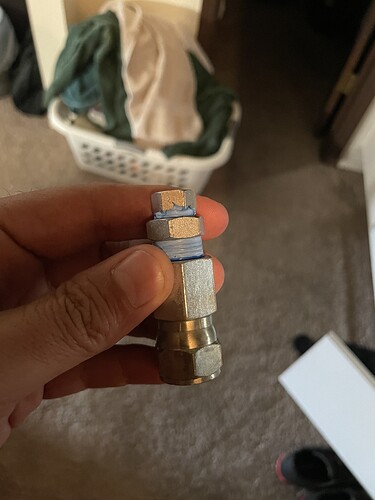Use a air compressor and pressure check the whole system and spray with soapy water and look forbthe micro bubbles same way you do a propane leak or and leak, cheapest solution soapy water.
Found the culprit. It’s a defective 1/4 fjic to 3/8 Mjic adapter
Im putting new fittings on my system. Boy whata pain.
I have it under pressure and lost a psi over night.
I have it to 100psi (max my compressor does)
I dunked it in water and no bubbles are showing.
Would the temp change from yesterday to today make this happen. Its a cooler day and was a cold night compared to the temp when i put in the pressure.
No. Temperature change shouldn’t really effect it. Sounds like a super small leak. I’d find a way to add more pressure. These tiny ones are a pain in the ass to track down. That’s why I say take it to 150psi after. Nitrogen can get you there too.
Your gonna have to do something. 1psi or any psi is unacceptable for our industry. Sorry brotha.
Ya thats what i figured
Yes! Changes in temperature will make your metal expand or contract thereby changing the volume, which changes the pressure. Same goes for the temperature of the air you put in there.
Snoop from Swagelok or Simplegreen is the best soapy liquid for finding small leaks. Snoop is by far the best.
How do you check valves properly?
A quick way is to use snoop or simple green sprayed around the valve. Bubbles will form if you see a leak.
From my experience, most valves don’t leak unless they are in the open position. When closed, the ball will usually sit below the handle and unless there is a major defect; it will probably seal closed. We use block off for all the fittings and open the valves under pressure to show valves that might leak with lose packing.
We have these in every size and multiple for extractors.
It’s just a female 37 degree swivel jic connector to female npt with a plug.

